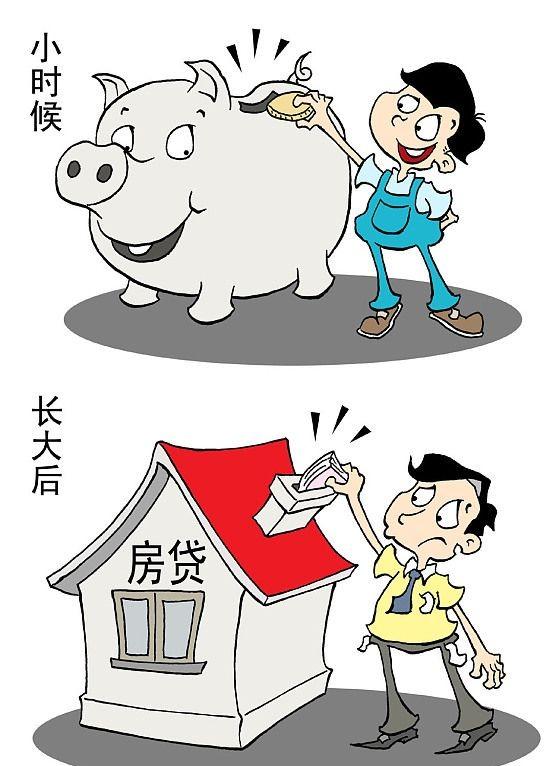Fangnu is one of the 171 new Chinese words published by the Ministry of Education in August 2007.
The explanation of "house slavery" is actually very easy to understand, because urban residents mortgage to buy houses, resulting in long-term pressure on residents' family life, affecting normal consumption, making the family quality of life decline, and even making people feel slave-like depression. In other words, these people who buy houses become "slaves" to the houses they buy.
And house slavery is also a common "social phenomenon", the cost of everything needed, the high house price, the income that can not make ends meet, has long suppressed some economically weak families. It seems that this is commonplace and commonplace in our lives. Especially for men, not having a house is almost a serious problem even marrying a daughter-in-law.

In fact, are the people who buy a house and owe a loan a house slave? After all, the loan is usually a part, and the down payment is not a small amount, either using their own savings or raising money from relatives and friends. But at least, these people still have the courage to buy a house, at least they live in their own house. Although it is said that the pressure of repaying loans every month is great, there is still some hope.
For those who rent houses all year round, people who buy houses and repay loans are not "real house slaves". More precisely, the people who buy a house and repay the loan are only "class B house slaves", while those who rent houses for many years are "first class house slaves".
Although the second-class house slaves have to repay the loan monthly, they have their own house, and even some of them can live in the unit, rent out their own house, and use the rental fee to subsidize the monthly payment to repay the loan. Some people in this group also have such "curved" ways of self-help.
Although first-class house slaves also have to pay rent every month, they are always under the eaves and have no home of their own. Renting a house for 10 years, you can pay the down payment for only one rent, but this down payment will "disappear" with time, of course, it will not be saved. Not to mention raising funds again to pay a down payment and taking out a loan to buy a house.
If we compare these "two-class house slaves" together, we will obviously find a very "sad" phenomenon. The first-class house slave rented the second-class house slave and paid the mortgage for them month by month, and finally the second-class house slave lost the identity of the "house slave", and the first class house slave was still a "house slave". I have to say that first-class house slaves are the hardest kind of people.
However, it is strange that the focus of society on the group of house slaves has always been to focus on the group that has bought a house, and it seems that there is not enough attention to the group that rents a house. Why? Because they are not even qualified to buy a house, they cannot enter the real problem of "house slaves".
But no matter what kind of house slaves, they need to get the general attention of society, pay attention to their survival pressure, pay attention to their happiness in urban life, and they also need more opportunities to get rid of the identity of "house slaves".